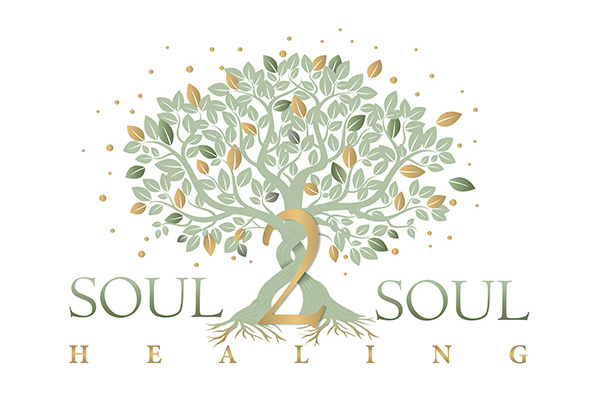What is Trauma?
Common Types of Trauma Teens Experience
- The impact of divorce
- Separation
- A family members addiction/substance abuse
- Sexual abuse
- Sexual/gender identity issues
- Bullying
- Loss of a loved one
Signs of Trauma in Teens
Signs of teen trauma can manifest in a variety of ways. Teens may begin to struggle more with their ability to regulate their emotions and act out more aggressively or engage in risky behaviors. They may also start to avoid situations that remind them of the trauma or withdraw from activities they used to enjoy.
Other signs may include depression, anxiety, changes in sleep patterns and appetite, increased irritability or angry outbursts, difficulty concentrating or focusing on tasks at school, struggling with relationships both inside and outside the home, and increased use of alcohol or drugs.
Additionally, teens exposed to trauma might have nightmares about it or flashbacks that seem real. They may also become more impulsive and have trouble controlling their emotions. In some cases, teens who experience trauma might self-harm or attempt suicide as a way to cope with the aftermath of what has happened.
It’s important for parents and family members to be aware of any changes in their teen’s behavior so they can intervene if necessary and connect them with resources that can provide support in managing the trauma they experienced.
The Impact of Trauma on Teens
Trauma has an immense impact on teenagers and can have a lasting effect on their physical and emotional development.
The effects of trauma on teens extend far beyond the immediate emotional or psychological effects. When traumatic events occur during adolescence, it can interfere with brain development and limit cognitive abilities in areas like memory, concentration and problem-solving. This can lead to difficulties in learning and academic achievement as well as social development.
Physical effects are also common among those who have experienced trauma in their youth. Teens may experience headaches, digestive issues, fatigue and sleep disturbances as a result of traumatic events. Studies have also found that some teens may be at higher risk for developing chronic health conditions such as heart disease or diabetes due to the compounded stress of repeated childhood traumas.
The long-term consequences of trauma experienced by teens can be severe if not addressed properly. It is important for parents to understand the signs of childhood trauma so they can provide effective support for their children throughout adolescence and into adulthood.
Help Your Teen Cope with Trauma
If your teen is struggling with unresolved traumas from past experiences, there are steps you can take as a parent to help them cope with their pain and move forward in life.
1. It is important to be patient and understanding when your teen is struggling with a traumatic experience.
2. It is essential for you to listen carefully when your teenager talks about their feelings related to the traumatic event(s). You should try not to judge what your teen has experienced but instead offer a listening ear and support.
3. You should encourage healthy behaviors such as getting enough sleep, participating in calming activities like yoga or mindfulness meditation and setting achievable goals for themselves each day.
4. It can be helpful for parents/caregivers to encourage teens who are struggling with trauma-related effects to seek professional help such as teen therapy.
5. It is essential that parents/caregivers practice self-care so you can provide better care for your teen during stressful times – taking regular breaks away from being with your teen if possible; staying connected with family/friends; exercising regularly; eating healthy foods; engaging in calming activities like deep breathing exercises; seeking out professional support if needed.
Teen Therapy & Treatment Options
If your teen is displaying any signs of trauma, then teen therapy would likely benefit them greatly. Soul 2 Soul Healing provides a safe space for your teen to talk about their experiences without feeling judged, allowing them the opportunity to process their emotions and work through any underlying issues causing them distress.
Cognitive Behavioral Therapy for Trauma
How Can CBT Help Teenagers with Trauma?
CBT can be incredibly helpful for teens dealing with trauma because it encourages them to face their emotions head-on. This can be beneficial for teenagers who may be struggling to deal with the aftermath of a traumatic event. Through CBT, teens can work through their grief in a safe environment where they will receive support from a trained professional.
In addition to helping teens process their emotions in a healthy way, CBT also teaches them coping strategies to help manage their emotions in stressful situations. These techniques include deep breathing exercises and mindfulness meditation techniques which can help reduce stress levels and promote relaxation. These tools can be invaluable when it comes to managing anxiety or depression that may stem from traumatic experiences.
Dialectical Behavioral Therapy for Trauma
The Benefits of DBT For Teenagers Struggling with Trauma
One of the most important benefits of DBT for teenagers struggling with trauma is that it helps them create better relationships with themselves and others. Through DBT, teens can learn how to become more mindful and aware of their thoughts and feelings, as well as those around them. This can lead to improved communication within relationships and better overall emotional regulation. Additionally, DBT teaches teens strategies for dealing with difficult emotions such as anger, fear, or sadness in healthier ways – rather than relying on self-destructive habits like substance abuse or disordered eating.
Another benefit of DBT is that it helps teach teens how to set realistic expectations for themselves when it comes to responding to challenging situations or even traumatic events in their lives. This means they will be less likely to give up when faced with difficult problems or experiences because they will have learned how to manage these emotions in productive ways instead. Finally, DBT encourages teens to be kinder towards themselves – something we all need more practice doing!
Therapy for Teens in El Segundo, Ca
Contact Soul 2 Soul Healing Today to Schedule Your Free Consultation!




